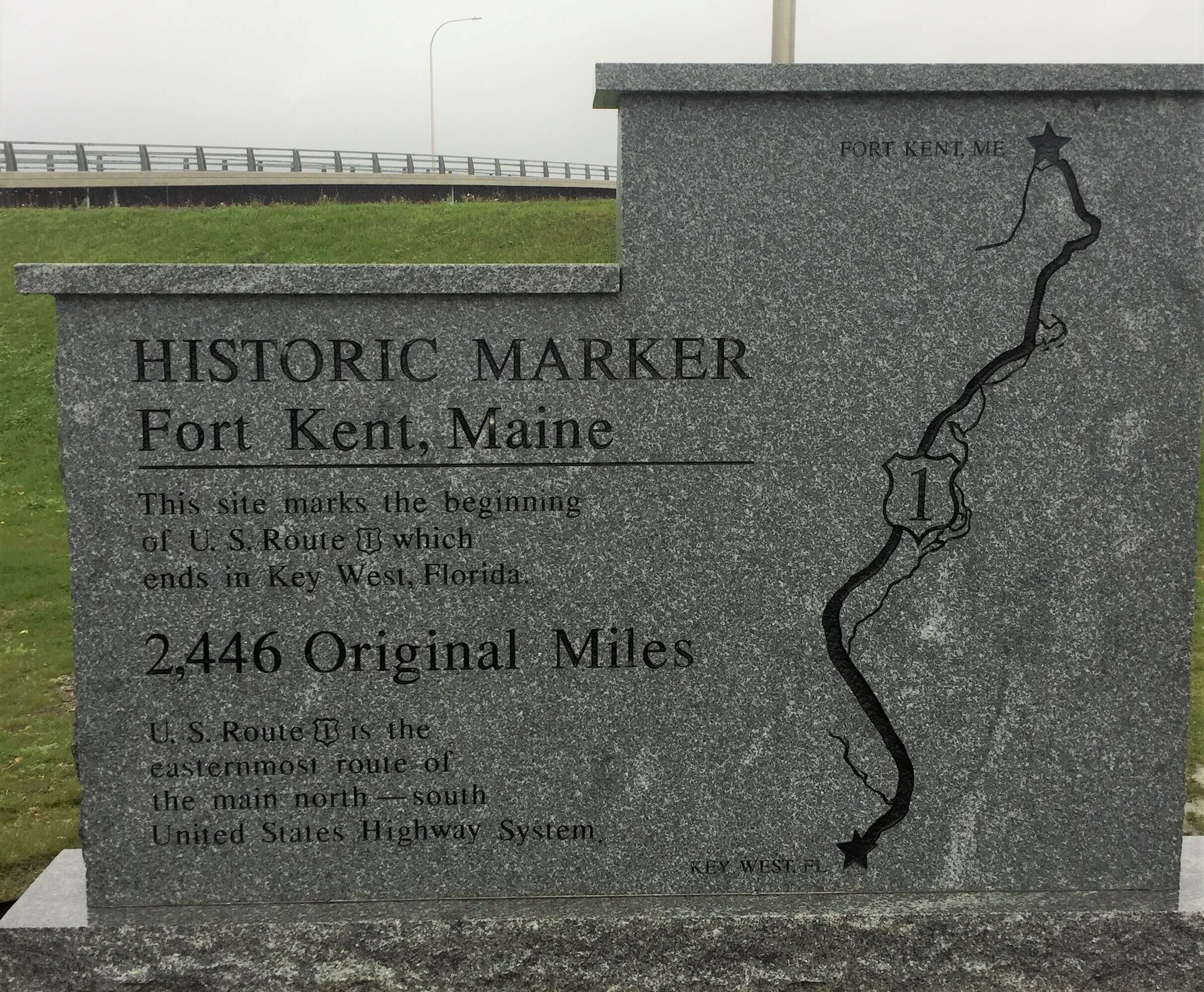
Processing Your Payment
Please do not leave this page until complete. This can take a few moments.
- News
-
Editions
View Digital Editions
Biweekly Issues
- October 20, 2025
- October 6, 2025
- September 22, 2025
- September 8, 2025
- August 25, 2025
- August 11, 2025
- + More
Special Editions
- Lists
- Viewpoints
- Our Events
- Calendar
- Biz Marketplace
Expansion of state EV charging program to 23 Maine towns, cities announced
 Courtesy / Office of Governor
Gov. Janet Mills speaks at the electric vehicle charging station at the West Gardiner travel plaza. The stations are part of a state effort to increase elective vehicle use.
Courtesy / Office of Governor
Gov. Janet Mills speaks at the electric vehicle charging station at the West Gardiner travel plaza. The stations are part of a state effort to increase elective vehicle use.
Awards for 23 municipalities that will install a total of 47 electric vehicle charging stations across the state that will add to the state's efforts on providing a statewide EV charging network were announced by Gov. Janet Mills Friday.
MIlls spoke at the West Gardiner Turnpike Plaza, where she dedicated a new public-use charging station installed by Efficiency Maine. She was joined by local officials and representatives of Efficiency Maine Trust and the Maine Turnpike Authority.
Two high-speed Level 3 chargers at the West Gardiner site, installed by Efficiency Maine, were dedicated Friday. It joins a Level 2 ChargePoint charger installed by ReVision Energy as part of a program to make EV chargers available from border to border in Maine.
Mills also announced businesses and municipalities granted Efficiency Maine incentive matching grants under the state's ongoing program with Efficiency Maine Trust to expand the use of EVs in Maine. Mills said the expansion will not only reduce carbon emissions, but will save residents money.
“Too many Maine people are at the mercy of the gas pump and its prices," Mills said Friday. "It is time to break the stranglehold that fossil fuel companies have over our wallets and put that money back into the pockets of Maine people
“By expanding the network of charging stations, our state is making electric vehicles a reality for more people, helping them save money on fuel costs, and protecting our environment from harmful carbon emissions — a hat trick for Maine.”
Michael Stoddard, executive director of Efficiency Maine Trust said that charging infrastructure and rebates for electric vehicles "are both critical ways Maine is working to transition its transportation system into the 21st century."
“This charging station in West Gardiner will serve regular commuters to and from Augusta as well as out-of-state visitors," he said. "The sites we have been developing have been chosen to promote EV commuting and support the growing number of visitors driving EVs.”
West Gardiner, where Interstate 295 and the Turnpike converge, is the "perfect location" for a fast charger in Maine, said Peter Mills, executive director of the Maine Turnpike Authority. “It’s at the confluence of Maine’s two major Interstate highways and there is always a restaurant open 'round the clock.”
The West Gardiner charging station has two Level 3 DC Fast Chargers, the fastest kind of EV charging available. Typical charge times for a full battery range from 20 minutes to an hour, and can deliver up to 250 miles of range per hour. Level 2 chargers, which are similar to what someone would have at a home or business, take three to eight hours for a full charge.
The site is one of several locations along key travel corridors that Efficiency Maine is developing as anchor sites for an EV charging network. So far, there are seven anchor sites with a total of 14 Level 3 chargers, installed by Efficiency Maine. There are also Level 2 chargers, which have two charging ports each, installed by ReVision. ReVision will maintain the chargers over the seven-year contract ChargePoint and ReVision have with the state.
The level of redundancy is critical in providing reliable service to EV travelers, and it is a significant investment by the state to make that available, Stoddard told Mainebiz. If one is out of service for any reason, there will be another one as a backup. Or if one is occupied by another car, a second car will not have to wait in line.
Besides West Gardiner, the charging stations are at the Turnpike service plazas in Kennebunk, both north and southbound; U.S. Route 201 in Jackman and Skowhegan; Route 27 in Farmington; and U.S. Route 302 in North Windham.

From Fort Kent to Portland
The first phase of the wider-ranging incentive program, which aims to install more chargers throughout the state, included 23 grant awards in two categories — one for northern and western Maine and a second for areas where there's a high liklihood of EV use.
Category 1 grants are for 80% of the project costs up to $8,000 per charger, and Category 2 grants and for 50% of project costs up to $5,000 per charger.
Category 1 of the awards was for proposals for Aroostook County and Downeast Route 1 from Calais to Fort Kent, and from Milbridge to Perry, including Eastport and Lubec; Route 201 in Somerset County from Solon to West Forks; Route 2 in Oxford and Franklin counties from Rumford to New Sharon; Route 6 in PIscatquis County rom Dover-Foxcroft to Rockwood.
Grants were awarded to International Motel, Calais; Down East Community Partners, Milbridge; Indian Hill Trading Post, Greenville; Northern Maine Medical Center, Fort Kent; and the town of Fort Kent.
Category 2 charging stations could be anywhere in the state "where there is a very high likelihood of receiving frequent and extensive use by the public, employees, or tenants: and "will encourage EV ownership and use in Maine through the strategic and highly visible nature."
Grants went to Bates College, Lewiston; Bowdoin College, Brunswick; College of the Atlantic, Bar Harbor; Falmouth School District, Falmouth; Holiday Inn Bangor, Bangor; Maine State Housing Authority, Augusta; Unum, Portland. Municipal awards went to Auburn, Bangor, Bath, Belfast, Fort Kent, Rockland, Skowhegan and five Portland locations, near Back Cove, City Hall, Payson Park, High Street and Westbrook Street.
An RFP for a similar round of grants was issued Oct. 7, with a deadline of Nov. 12.
An economic boost
Municipal officials touted the benefits of the stations they'll be installing not only for residents, but as a way to boost economic development.
Skowhegan Town Manager Christine Almand said, “This project pairs well with our Run of River project to help make Skowhegan a destination."
She said that with the help of Efficiency Maine, the town is also completing an extensive energy project that includes building upgrades and LED street lighting. "These are smart energy choices that help to lower the tax burden and to ensure a sustainable future," she said.
Those involved in the installations have pointed out the increasing use of the electric vehicles in Canada, making installation a must for tourism near Maine's entries to Quebec in Franklin and Somerset counties — Skowhegan is on Route 201, which goes north to the Jackman border crossing — as well as New Brunswick, at Fort Kent and Calais.
In Fort Kent "more and more electric cars are on the road so these new charging sites will provide residents and tourists alike the security in knowing an 'electric fill up' is available," said Steve Pelletier, director, planning and economic development for the town, which is at the northern end of U.S. Route 1.
The chargers are being added at the municipal building and Northern Maine Medical Center. "The municipal site in in close proximity to the International Bridge that links the community to our Canadian neighbors, and the America’s First Mile Monument, that draws thousands of visitors each year," he said. "The NMMC site is adjacent to Route 1 and in addition to the hospital, the chargers are in close proximity to the Fish River Rural Health Clinic, Forest Hill Nursing Home and Rehab Center, and Pelletier Ford and Dodge. Both sites are very visible where they can be accessed 24/7."
In Bangor, the stations will be in the Pickering Square parking garage, said Tanya L. Emery, director, community and economic development. "The parking garage is critical to our downtown, and offering all the options consumers want makes it a greater community resource. We will include the charger as part of our renovations to the garage. This allows downtown Bangor to become part of the public infrastructure for electric vehicle drivers, whether they are residents or visitors."
The effort to expand Maine’s EV charging infrastructure is paired with the Efficiency Maine EV Accelerator Program, which Mills and Stoddard announced last month, and which provides instant rebates for qualifying plug-in hybrid and battery electric vehicles at participating car dealers in Maine.
Mainebiz web partners
Related Content

The Giving Guide
The Giving Guide helps nonprofits have the opportunity to showcase and differentiate their organizations so that businesses better understand how they can contribute to a nonprofit’s mission and work.
Learn More
Work for ME
Work for ME is a workforce development tool to help Maine’s employers target Maine’s emerging workforce. Work for ME highlights each industry, its impact on Maine’s economy, the jobs available to entry-level workers, the training and education needed to get a career started.
Learn More
Groundbreaking Maine
Whether you’re a developer, financer, architect, or industry enthusiast, Groundbreaking Maine is crafted to be your go-to source for valuable insights in Maine’s real estate and construction community.
Learn more-
The Giving Guide
The Giving Guide helps nonprofits have the opportunity to showcase and differentiate their organizations so that businesses better understand how they can contribute to a nonprofit’s mission and work.
-
Work for ME
Work for ME is a workforce development tool to help Maine’s employers target Maine’s emerging workforce. Work for ME highlights each industry, its impact on Maine’s economy, the jobs available to entry-level workers, the training and education needed to get a career started.
-
Groundbreaking Maine
Whether you’re a developer, financer, architect, or industry enthusiast, Groundbreaking Maine is crafted to be your go-to source for valuable insights in Maine’s real estate and construction community.
ABOUT
NEW ENGLAND BUSINESS MEDIA SITES
No articles left
Get access now
In order to use this feature, we need some information from you. You can also login or register for a free account.
By clicking submit you are agreeing to our cookie usage and Privacy Policy
Already have an account? Login
Already have an account? Login
Want to create an account? Register
Get access now
In order to use this feature, we need some information from you. You can also login or register for a free account.
By clicking submit you are agreeing to our cookie usage and Privacy Policy
Already have an account? Login
Already have an account? Login
Want to create an account? Register











1 Comments